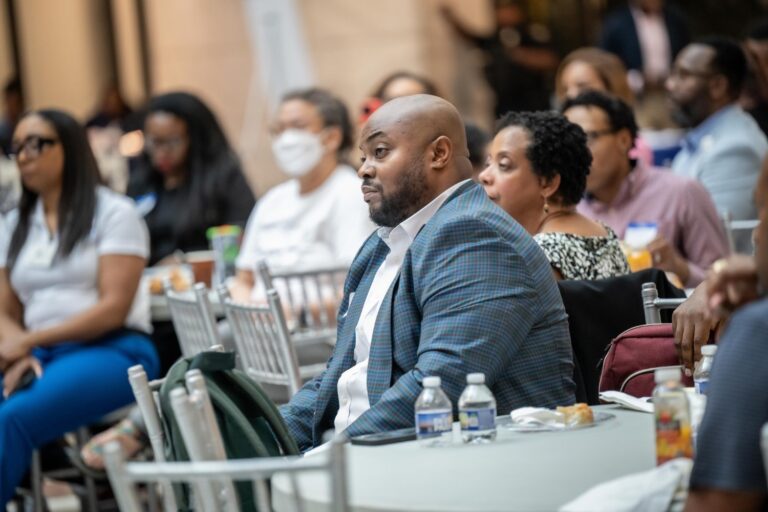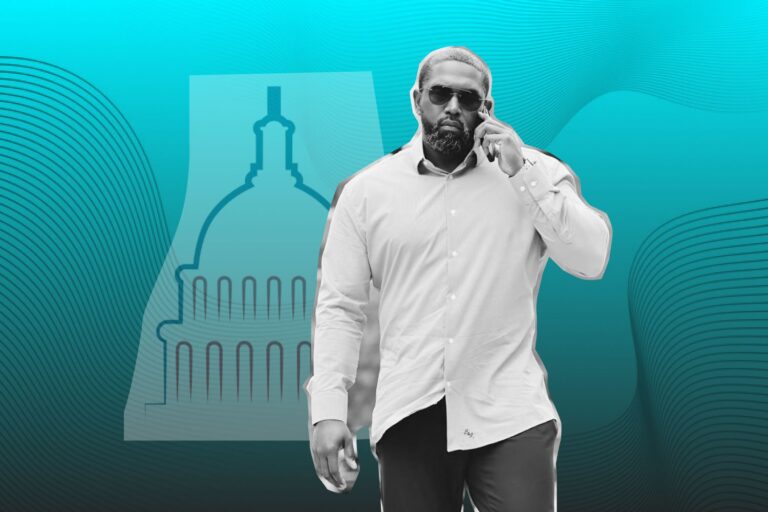Coronavirus Pandemic and Recovery Resources for Small Businesses
In late 2019, early 2020, a new strain of coronavirus called SARs-CoV-2 appeared in China and quickly spread worldwide, becoming COVID 19 pandemic. The COVID 19 has now become a dangerous pandemic that has a serious impact on every aspect of each nations. As of March 25, there is 425,987 cases and nearly 20,000 deaths worldwide. The nationwide lockdown has been announced in some countries such as Italy, Malaysia and India due to the severe damage of this virus. Many schools are closed indefinitely, thousands of people are now unemployed.
In the US, the number of people infected by coronavirus is more than 50,000, accounts for nearly 20% of global cases. This outbreak also hurt many industries in the United States, including healthcare, transport and education. The economic is primarily hurt. According to Business Insider, the 16th of March was the worst day ever of the US stock market since 1987. Small businesses are also suffering disruptive effects from the coronavirus.
Economic Negative Impacts on SMBs In The U.S
It is obvious that coronavirus has many bad effects on the economy of the U.S. People afraid of going outside or gathering in public places. That leads to a severe impact on many small businesses, especially restaurants or some other public retails.
According to the NY Times, at Chuckie Pies, a pizza restaurant in Lake Oswego near the school where the patient with Covid-19 worked, business was down 25 percent on Saturday. A coffee shop nearby is also affected. Many businesses went bankrupt, hundreds of employees are suspended.
In order to survive and recover from this pandemic, small businesses should apply for grants and fun or find reliable resources that can guide as well as support them to overcome their problems. These resources may help small business recover during coronavirus pandemic.
The Major Federal Funding Program: The $367 Billion in SBA Loans for COVID-19

In response to the Coronavirus, the U.S. Small Business Administration (SBA) offers a low interest loans for small businesses suffering economic injury.
- Eligibility: All severely damaged small businesses in the U.S
- Amount: up to $2 million in assistance with vital economic support if needed.
- Details: Disaster loans can be paid for fixed debts, payroll, accounts payable and other bills that can’t be paid with the repayment within 30 year. The interest rate for small business is 3.75% or 2.75% for non-profits.
- Application: online process. If you have any difficulties with the online applications, call 1‐800‐659‐2955 or email disastercustomerservice@sba.gov
- Deadline: December 16, 2020
If you had trouble accessing the SBA.gov site the past few days to apply for disaster assistance loans, you’re not alone. The application portal was showing a maintenance message for most of the day as thousands of business owners around the country rushed to apply for much-needed COVID aid. According to reports out of D.C., the SBA was alerted to a glitch that was exposing applicants’ Social Security numbers, names, birth dates and addresses as new applicants tried to complete it.
The SBA has since taken the portal down to fix the issue and recommended businesses fill out a PDF application and upload it to submit instead. Right now, the SBA is asking borrowers to fill out the following forms immediately:
- Disaster Business Loan Application (SBA Form 5) or the Disaster Home/Sole Proprietor Loan Application (SBA Form 5C)
- Economic Injury Disaster Loan Supporting Information (Form P-019)
You’ll then upload those completed forms to the SBA Economic Injury Disaster Loan website. You may be asked to fill out additional forms later.
Save Yourself Time and Energy with the Frequently Asked Questions Below:
Who Are These Loans For?
- You must be a small business, cooperative, ESOP or tribal business with 500 or fewer employees;
- An individual who operates under as a sole proprietorship, with or without employees, or as an independent contractor; or
- A private non-profit or small agricultural cooperative.
- Your business must be directly affected by COVID-19
Are They Available in My State?
All states and US territories are now eligible to apply.
How Much Can I Ask For?
The maximum loan amount is $2 million.
Can I Be Approved for a Lower Dollar Amount?
Yes that’s possible.
How Do I Get the $10,000 Grant?
The CARES Act signed by the President on March 27, 2020 now includes a $10,000 emergency grant to be made within three days of application. (It is unclear how quickly the SBA will be able to fulfill these requests, however, due to record application volume.)
These grants may be used for:
- providing paid sick leave to employees unable to work due to the direct effect of the COVID–19;
- maintaining payroll to retain employees during business disruptions or substantial slowdowns;
- meeting increased costs to obtain materials unavailable from the applicant’s original source due to interrupted supply chains;
- making rent or mortgage payments; and
- repaying obligations that cannot be met due to revenue losses.
These grants do not have to be repaid.
If you get an SBA 7(a) loan under the Payment Protection Act and are eligible for loan forgiveness, this grant will reduce the amount eligible for forgiveness.
How Long Do I Have to Be in Business?
The time in business requirement has been waived. However, the business must be in operation by the date of the declared disaster. For COVID-19-related claims that means before January 31, 2020.
Do I Have to Have Employees?
No. Business owners without employees may be eligible.
Are Home-based Businesses Eligible to Apply?
Yes. Being a home-based business does not disqualify you. However, you must list a US address on your application. If you normally use a PO Box for business correspondence, make sure to list your physical home address.
How Can I Use the Money?
These working capital loans may be used to pay fixed debts, payroll, accounts payable, and other bills that could have been paid had the disaster not occurred. The loans are not intended to replace lost sales or profits or for expansion. Funds cannot be used to pay down long-term debt.
Can I Use This to Consolidate Debt?
These loans cannot be used to refinance long term debt.
If I Have Access to a Line of Credit Elsewhere Can I Apply?
Yes you can still apply. You can use that funding while you wait for disaster assistance. In fact, if you have access to another source of borrowed capital to bridge the gap between your application with the SBA and when funds are dispersed, we would recommend that.
What Is the Credit Score Requirement?
There is no minimum credit score required, however, applicants must have a credit history acceptable to SBA.
What If I Don’t Have Great Credit Scores?
If you have damaged credit, apply and include an explanation with your application. Guidelines for those who process SBA Disaster Loan applications state:
“For disaster lending purposes, satisfactory credit history is defined as a history that generally shows payments to creditors as agreed unless otherwise justified…
Generally, a history that consists of minor, isolated instances of adverse credit or late payments is acceptable. Major instances of adverse credit such as unpaid judgments, repossessions, previous foreclosures, charge-offs, and unpaid collections can be overcome provided:
- The applicant explains the lapse; and
- The applicant has other accounts with “as agreed” payment records.
For purposes of evaluating adverse information found on an applicant’s (credit reports), the information should be considered within the totality of circumstances; for example, financial difficulties caused by one-time situations such as divorce, job loss, serious medical illness, etc.
For purposes of disaster lending, medical collections are not considered adverse information.
Non-medical collections or charged off accounts with an aggregate of $10,000 or less and foreclosures or deed-in lieu of foreclosures which occurred more than two years from the date of the loan application are all considered an acceptable credit risk and do not require any additional justification.”
However, it does also state that loans cannot be recommended for approval if the credit history is unsatisfactory so there is no guarantee that it won’t result in a denial.
What If I Have Been Through Bankruptcy?
Prior bankruptcy is not an automatic reason for denial. A previous Chapter 7 bankruptcy may be acceptable, especially if it is older, but even recent bankruptcy (within the past two years) may be acceptable if it was due to circumstances beyond the applicant’s control and he or she has maintained a positive credit history since.
Applicants currently in Chapter 11 bankruptcy may be eligible if payment history is satisfactory, though written permission from the Bankruptcy Trustee will have to be obtained. Businesses in Chapter 11 bankruptcy may or may not be eligible; it may still be worthwhile to apply.
Will My Business Credit Be Checked?
The SBA requires a business credit check from Dun & Bradstreet or a similar commercial credit agency for approved loan amounts of $200,000 or more, unless your business is a sole proprietorship.
What Credit Problems Will Disqualify Me?
In addition to the guidelines above you may not qualify if:
- You are more than sixty (60) days delinquent on child support obligations.
- You have judgements against you for federal debts and you have not worked out a satisfactory repayment plan.
- You have federal tax liens of more than $10,000. (You may still qualify but you must provide a satisfactory explanation and be able to repay the tax debt. It’s recommended you work out a payment plan with the IRS as soon as possible.)
What Do I Do If My Credit Is Frozen?
It’s recommended that you lift any credit freeze (with all credit reporting agencies) before you apply. Make sure you have alerts set up to detect any new activity on your credit reports so you can freeze your files again once your credit has been checked.
How Fast Can I Get Funding?
The SBA’s goal is to process completed applications within 21 days but this is an unprecedented disaster of national scope and it is entirely possible the SBA will become overwhelmed with applications. In previous disasters, processing has taken as long as an average of 45 days.
Will I Get the Full Amount Right Away?
The first disbursement will be up to $25,000 and there will be later disbursements.
What If I Shut Down and Don’t Know When I Will Reopen?
Estimate how long you will be shut down. Note on your application how you arrived at that on the application. You can also request additional funds in the future if needed.
Do I Have to Be Turned Down by A Bank First?
No. While you certainly should be looking at all financing options available, including the new SBA 7 (a) loans available under the Paycheck Protection Act, you won’t have to supply credit rejection letters in order to apply. The “credit elsewhere” test the SBA normally performs has been waived for these loans.
Is There A Prepayment Penalty?
No. You can pay off the loan early without a penalty.
Can Landlords with Investment Properties Qualify?
Yes, you may be eligible.
Application and Forms to Apply for SBA Loans for COVID-19 Dis:
You can download each form here:
- Disaster Business Loan Application (SBA Form 5) or the Disaster Home/Sole Proprietor Loan Application (SBA Form 5C)
- Economic Injury Disaster Loan Supporting Information (Form P-019)
- Request for Tax Information Authorization (IRS Form 4506T)
- Personal Financial Statement – Disaster Programs (SBA Form 413D)
- Schedule of Liabilities Worksheet (SBA Form 2202)
- Additional Filing Requirement – Monthly Sales Figure Worksheet (SBA Form 1368)
Funding Assistance Programs from Public Sector
#1: The U.S Chamber of Commerce

It would be flawed if we do not mention the U.S Chamber of Commerce. It is the world’s largest business organization representing the interests of more than 3 million businesses of all sizes, sectors, and regions. Since U.S Chamber of Commerce is a political organization, all of the sources here are reliable. You can find information about grant assistance and other helpful sources to deal with economic crisis in this page.
What you can find in this website? With the belief that no business should go bankrupt, the U.S Chamber of Commerce provide every businesses and workers with all the help they need: latest news and updates, a huge resource toolkit, SMBs advice and proposal for government action.
#2: NYC Employee Retention Grant Program

Businesses in NYC effected by the corona virus can apply for this program. This program is launched by the city to help small businesses with the decrease of revenue during COVID 19.
Eligibility:
- Small businesses with fewer than 5 employees located within the five boroughs of New York City.
- Revenue decreased 25% because of COVID 19.
- Employ 1-4 employees in total across all locations.
- Have been in operation for at least 6 months.
- Have no outstanding tax liens or legal judgements.
Amount: grant covering up to 40% of their payroll for two months. Businesses can also access up to $27,000.
Application: Prepare the required documents, create your account on SBS connect and submit your application.
#3: NYC Small Business Continuity Loan Fund

This program is quite similar to the NYC Employee Retention Grant except the amount and the number of employees in total.
Eligibility:
- Small businesses with fewer than 100 employees located within the five boroughs of New York City.
- Revenue decreased 25% because of COVID 19.
- Employ 99 employees in total across all locations.
- Demonstrate ability to repay the loan
- Have no outstanding tax liens or legal judgements.
Amount: zero Up to $75,000 with no interest
The purpose of this loan is to retain employees and ensure business continuity. The loan can be deployed for a variety of uses, including working capital, inventory, or other investments.
Application: You will need to answer some questions and provide necessary documents as an applicant.
#4: Seattle Business Stabilization Fund

A total fund of $1.5 million is created by the city to help business in such a situation.
Eligibility: To apply for this program, you must satisfy all requirements below. You must have low- or median income (≤80% of the Area Median Income) and you must run a small business with fewer than 5 employees, including you. Your business must have a physical location and experienced a net loss because of coronavirus outbreak.
Amount: up to $10,000
Deadline: 25th, March
Notice: Grant money may only be used for the operating expenses.
#5: Other Local Government Funds and Grants

There are many other Funds, Grants and Loans for specific state or city that you may find useful for your situation. You can visit there
- Atlanta Business Continuity Loan Fund
- Berkeley Relief Fund
- Chicago Small Business Resiliency Loan Fund
- Connecticut, Greater Hartford COVID-19 Response Fund
- Denver Small Business Emergency Relief Fund
- Florida Small Business Emergency Bridge Loan Program
- Fort Collins Small Business Relief and Recovery Loan Fund
- Hillsboro COVID-19 Crisis Funding and Emergency Grant
- Kaimuki Small Business Relief Fund
- Kansas Hospitality Industry Relief Emergency Fund
- Long Beach Coronavirus Relief Fund
- Los Angeles Small Business Emergency Microloan Program
- Massachusetts Small Business Recovery Loan Fund
- Michigan Small Business Relief Program
- New Mexico COVID-19 Business Loan Guarantee Program
- Portland (Jade District and Old China Town) Small Business Response Fund
- Sacramento Small Business Emergency Economic Relief Loan Program
- Salt Lake City Emergency Loan Program
- San Diego Small Business Relief Fund
- San Francisco COVID-19 Small Business Resiliency Fund
- Seattle Foundation’s COVID-19 Response Fund
- Wisconsin Small Business 20/20 grants
Helpful Resources and Funding Assistance from Private Sector
There are many websites that provide you with useful tips, business plans, to get through this COVID 19 pandemic. Here are some of the most helpful resources that we have gathered. Some of them are websites that include tips and information for you to recover, others are grants and loans that you may apply for to deal with current financial situation.
This is such a hard time for any companies, especially small businesses. Go through this list to find the way to overcome your obstacles.
#6: Intuit Quickbook

This website provides small businesses with many tips, along with resources and many business plans to get through the crisis steps by steps. Quickbook has a great resource center divided into different categories like finance & funding, operation and technology, online store. You may find the best advice for your situation in COVID 19 easily through this website. They also frequently update news about coronavirus and how to deal with it in financial aspect.
One more thing about that website that you may like: it also has a QuickBook capital that gives specific qualified businesses chance to receive a funding from $5,000 to $100,000. There are some advantages of this program: No origination fees, no prepayment penalties, no hidden charges. To be eligible for this program, you should show a clear picture of your business in QuickBooks, provide your personal and business credit history and you have to earn a revenue of at least $50,000 over the past 12 months. Last but not least, your primary business bank accounts must be connected through QuickBooks.
#7: Restaurant Worker’s Community Foundation

If you are running your own restaurants, Restaurant Worker’s Community Foundation is a great source for you. It consists of a large amount of references, data and statistics, grants and loans information for restaurant community. You can also share any information you have via info@restaurantworkerscf.org to support others in the same field.
This website is well-organized, so it is very easy for you to look for what you need. Some main categories that they have: Unemployment information, Relief Funds for Restaurant workers, Financial Assistance, Impact on Restaurant Industry and many others like health care prevention, news, volunteering opportunities. Restaurant Worker’s Community Foundation also has valuable resources for immigrants.
#8: Facebook Small Business Grants Program

Courtesy: Facebook
Not only does this popular social networking site provide people with a list of resources to recover but also provide small businesses with financial support. However, this program has just posted recently. Therefore, you should wait for a couple weeks for application process and more information.
- Eligibility: Small businesses in more than 30 countries.
- Amount: $100 million in cash and ad credits for up to 30,000
There are several ways for you to use this grant effectively: pay rent cost and operational cost or connect you with your customers. In order to keep up to date with the application process, you may need to visit their website frequently.
#9: Amazon’s Neighborhood Small Business Relief Fund

Being located in Seattle, this multinational technology company decided to help its neighborhood to overcome the economic challenge during COVID 19.
- Eligibility: Businesses that are service or retail establishments open to the general public with no more than 50 employees or less than $7 million in revenue per year in South Lake Union, Bellevue, and Regrade neighborhoods. Businesses that do not rely on foot traffic and are not generally open to the public are not eligible for this program.
- Amount: $5 million grants that you don’t need to pay back.
- Application: Your application should be done online. Amazon, in cooperation with a third-party will review your application and disburse funds as soon as possible.
This fund can help small businesses manage short-term variations in cash-flow demonstrated and cover operating expenses as well as keep their businesses working.
#10: Yelp’s COVID-19 Response and Support for Local Businesses

According to Yelp, due to COVID 19, over the past week, the consumer interest for restaurant has fallen by 54%. Restaurant owners are suffering a big crisis. If you manage a restaurant, Yelp may help you recover from the coronavirus outbreak.
- Eligibility: Small businesses in restaurant and nightlife field in the U.S., Canada, the U.S. Virgin Islands, and Puerto Rico with fewer than five location that are still open.
- Amount: $25 million funding in relief.
This relief support small businesses with waived advertising fee and provide them with free advertising, products, service, and access to Yelp page upgrades as well as Yelp Reservations and Waitlist. There is also $100 in search advertising for delivery restaurants. You can look for more information about this relief program here.
Loan Qualification: The Industry List That is Likely Approved by Lenders
Many lenders want to see a longer track record than they previously required. This could mean different things to different lenders. A lender that previously may have required a year in business last week, may want to see 18 months or two years now. You need to know what those requirements are before you apply, so you can focus your efforts on where you’ll have a better chance for success.
- Restaurants
- Automotive
- Gas Stations
- Dentists
- Hospitality
- Daycare
- Gyms and Sports Clubs
- Entertainment Businesses—anything that draws a crowd
- Education
- Bricks and Mortar Retail
- Night Clubs and Bars
- Wireless Stores
Entrepreneurs’ Go-to Portal by State
If there’s a silver lining in the coronavirus pandemic, it’s that people and organizations have quickly banded together to provide support for one another. Given how hard this is hitting small businesses, it’s great to see organizations, both at the national and local levels, jumping to provide aid and guidance to entrepreneurs. Below is a list of COVID-19 resources and guidance by state.
State-by-State COVID-19 Resources
While the above list of resources is available to anyone in the U.S. each state is offering additional resources to business owners.
Alabama
In Alabama, employers whose employees must file unemployment compensation claims for weeks filed due to COVID-19 related issues may see some temporary relief, as all charges will be waived.
And the Department of Revenue is providing relief for state lodgings tax account holders as well as small businesses who are unable to pay their February, March, and April 2020 state transient occupancy tax on time. Late payment penalties will be waived through June 1, 2020.
Alaska
The Governor of Alaska has announced plans to offer a $1 billion disaster relief fund, but details haven’t yet been fleshed out.
The Alaska Small Business Development Center is offering several free on-demand training videos to help businesses navigate through these tricky times.
Arizona
Many states, including Arizona, offer a Shared Work Unemployment Compensation Program: an alternative for employers faced with a reduction in force.
This program allows an employer to divide the available work or hours of work among a group of affected employees instead of laying them off, and it allows the employees to receive a portion of their Unemployment Insurance benefits while working reduced hours.
An approved Shared Work Plan is valid for one year. An employee may be eligible for up to 26 weeks of Shared Work benefits.
Arkansas
Arkansas’ Shared Work Unemployment Compensation program is aimed at preventing COVID-19-related layoffs right now.
The state has a Quick Action Loan Program that provides a loan or loan guaranty of up to $250,000, with priority given to small to medium-sized companies that are in the supply chain of essential goods and services (including healthcare, food manufacturing, logistics).
Additionally, the Community Development Block Grant (CDBG) provides grants to eligible local governments to provide loans to companies impacted by COVID19, as well as grants to clinics, hospitals, and other non-profits working in rural Arkansas and to vulnerable populations such as the homeless.
The Arkansas State Chamber website has updated information.
California
In California, businesses suffering a hardship because of COVID-19 can request up to a 60-day
extension from the State of California’s Employment Development Department (EDD) to file their state payroll reports and/or deposit state payroll taxes without penalty or interest. Here’s more information.
California also has an Unemployment Insurance (UI) Work Sharing Program that can help you minimize or eliminate layoffs.
If you rent commercial (or personal) property, here’s some relief: California Governor Newsom signed an executive order to halt evictions and slow foreclosures until May 31 unless conditions change.
In certain states, particularly those hard-hit, like San Francisco, other local measures have been taken. Here you can learn about deferred quarterly tax payments and annual small business licenses and permits, as well as emergency loan funds available to businesses hit by the pandemic.
Colorado
Colorado’s Work-Share Program provides an alternative to laying off your employees by keeping them working fewer hours, during which your employee may be able to collect unemployment benefits.
The state also offers a Rapid Response program that allows you to receive consultation on layoff aversion strategies, onsite workshops for employees in transition, job placement assistance, and information on unemployment benefits.
Colorado also has a Small Business COVID-19 Disaster Response Hotline to answer your questions: 303-860-5881.
And here’s something uplifting: the website Support CO Local is helping keep Colorado businesses afloat by selling gift cards on the site during their closure for COVID-19.
Connecticut
In Connecticut, the Department of Revenue Service has extended deadlines for annual state tax returns due on or after March 15, 2020, and before June 1, 2020, by at least 30 days.The payments associated with these returns are also extended. Learn more.
And like others, Connecticut offers a Shared Work program through its Unemployment Insurance division.
Delaware
Delaware has launched its Hospitality Emergency Loan Program (HELP), which offers no-interest loans of up to $10,000 per hospitality business per month.
Delaware.gov provides ongoing updates on resources for small businesses.
Florida
The Florida Small Business Emergency Bridge Loan Program is available to small
business owners in Florida that have experienced economic damage as a result of COVID-19. If you qualify, you can get a short-term, interest-free working capital loan to help you recover.
Also, the Short Time Compensation program helps employers retain their workforce in times of
temporary slowdown by encouraging work sharing rather than laying them off.
Florida SBDC’s Business Disaster Recovery Assistance page offers additional resources on where you can find assistance.
Georgia
The NFIB offers resources and online events to help small businesses in Georgia.
Hawaii
The Chamber of Commerce Hawaii has a page of COVID-19-related content for business owners.
Idaho
Idaho’s SBDC has resources to assist small businesses in the state, including information on disaster recovery. The state also has a resources page on COVID-19.
Illinois
The Illinois Department of Revenue (IDOR) is waiving any penalty and interest that would have been imposed on late sales tax payments from qualified businesses who operate eating and drinking establishments.
The Illinois Department of Commerce has a resource page for small businesses.
In Chicago, there is a Chicago Small Business Resiliency Fund offering low-interest loans up to $50,000 and repayment terms of up to five years to businesses who have seen a 25% or greater drop in revenue due to COVID-19.
Indiana
The Indiana Small Business Development Center is a hub of all information relevant to small businesses.
Iowa
The Iowa Department of Revenue extended the filing and payment deadlines for income, franchise, and moneys and credits taxes until July 31, 2020.
The Iowa Workforce Development site has useful information about unemployment insurance and the Voluntary Shared Work program, as well as free webinars. NFIB is another resource, as is the Iowa Economic Development site.
Kansas
In Kansas, the Hospitality Industry Relief Emergency (HIRE) Fund allows impacted hospitality businesses to receive a loan of up to $20,000 at 0% interest for a period of 36 months. There will be no principal or interest payments for the first four months.
The Community Development Block Grants program has been streamlined to get suffering businesses funds within two days.
KCSourceLink has resources for small businesses.
Kentucky
Team Kentucky has resources and links related to COVID-19 for small businesses. The Kentucky SBDC has a useful ebook entitled “Checklist for Managing in Times of Financial Difficulty.”
Louisiana
The Louisiana Economic Development website has resources at the federal, state, and regional area on COVID-19, and the Louisiana SBDC has useful content.
Maine
The Finance Authority of Maine (FAME) is partnering with the SBA and local Maine lenders to offer limited-time loans up to $50,000 and up to 75% pro-rata loan insurance on loans up to $100,000.
The CEI website has coronavirus resources, as well as information for specific industries like farming and child care. The Maine Department of Economic and Community Development also has resources.
Maryland
Apply for Maryland’s Work Sharing Program here if you’re struggling to keep employees working in your business.
The state is also extending the deadline for tax payments (business and individual) by 90 days, with no interest or penalties. The deadline for business-related tax filings is now June 1. And licenses, permits, and registrations that would expire during the current state of emergency will be extended until at least the 30th day after the state of emergency is lifted.
Stay informed on the Maryland Business Express website.
Massachusetts
Massachussetts’ WorkShare program could be the resource you need to keep from laying off employers due to COVID-19: regular sales tax, meals tax, and room occupancy taxes that would be due in March, April, and May are now due on June 20 with no penalties or interest.
Businesses that paid less than $150,000 in regular sales plus meals taxes in the year ending February 29, 2020 will be eligible for relief for sales and meals taxes. And those that paid less than $150,000 in room occupancy taxes in the same year will be eligible for relief for room occupancy taxes. Here’s more information.
Certain licensed professionals whose licenses or registrations are due during the COVID-19 emergency will receive a 90-day extension to renew.
Michigan
With Michigan’s Work Share program, unemployment benefits are based on a percentage of the reduced hours of work and pay. The reduction in work hours must result in an equivalent reduction in wages. Details here.
The Michigan Small Business Relief Program will provide up to $20 million to small businesses negatively impacted by COVID-19, divided into $10 million in small business grants and $10 million in small business loans to support businesses facing drastic reductions in cash flow and the continued support of their workforce.
Minnesota
Restaurants, bars and other hospitality businesses who had to temporarily close in Minnesota because of COVID-19 have a 30-day grace period to pay sales and use tax, and they will not have to pay penalties or interest
The Governor has issued an executive order that relieves employers of unemployment benefit charges associated with COVID-19; they will not see an increase in their UI tax rate if they have workers who collect unemployment benefits.
The Economic and Employment Development site, as well as the Minnesota Chamber of Commerce have coronavirus updates and resources.
Mississippi
The Mississippi SBDC has resources and a toolkit for business owners. The Department of Employment Security has information on unemployment benefits.
Missouri
The NFIB in Missouri has resources related to small businesses and COVID-19
Montana
Montana employers who have had to lay off or let go of employees because of coronavirus may not have to pay unemployment benefits for those workers, thanks to recent temporary measures.
Nebraska
In Nebraska, the Governor has made an executive order for restaurants and bars impacted by COVID-19, including allowing restaurants to sell alcohol with take-out and delivery orders, waiving excise tax penalties, and extending temporary operating permits.
You can find answers to questions you may have about unemployment benefits, short-term compensation, and other coronavirus-related topics here.
Nevada
Find resources on the Nevada SBDC and NFIB pages.
New Hampshire
Employers are temporarily relieved of paying unemployment benefits to employees they have to let go because of COVID-19. And the state’s WorkShare program is designed to help you keep employees working.
The New Hampshire Department of Business and Economic Affairs (BEA) has a comprehensive web page of resources.
New Jersey
The Department of Labor and Workforce Development in New Jersey has a website with answers to common questions. So does the New Jersey Economic Development Authority.
New Mexico
The New Mexico Economic Development Department has launched the COVID-19 Business Loan Guarantee Program, which guarantees a portion of a loan or line of credit up to 80% of principal or $50,000. There are also LEDA zero-percent interest loans available, which can be used for land, building and infrastructure, as well as lease abatement or mortgage assistance.
Personal and corporate state income taxes have an extended deadline with no penalty or interest for payments.
New York
If your business has seen a reduction in revenue by 25% or more because of COVID-19 and you have 100 or fewer employees, you may be eligible for zero-interest loans up to $75,000 through the NYC Small Business Continuity Fund.
The city is also offering small businesses with fewer than 5 employees a grant to cover 40% of payroll costs for two months (an average of $6,000).
Here are state resources on COVID-19 from Empire State Development and New York State Restaurant Association.
North Carolina
The North Carolina Department of Revenue has extended the tax filing deadline to July 15 for individual, corporate, and franchise taxes with no penalties.
Employers will not be charged for individuals who are paid unemployment benefits for reasons related to COVID-19.
North Dakota
To align with the extension provided by the IRS for tax filing and payments, the North Dakota state tax filing deadline has been extended to July 15.
The Greater North Dakota Chamber as well as the SBDC have small business resources.
Ohio
In an effort to aid restaurants and bars in Ohio who are struggling due to closures, the Ohio Department of Commerce will offer a liquor buyback option.
Ohio’s Bureau of Workers’ Compensation (BWC) system has deferred insurance premium installment payments for March, April, and May until June 1, 2020.
Employers can now defer health insurance premium payments interest free for up to 60 days.
The state’s TechCred program offers employers up to $2,000 in reimbursement for every technology-focused credential earned by an employee, up to $30,000 per employer per round. SharedWork Ohio allows workers to remain employed and employers to retain trained staff.
And the state tax deadline in Ohio has been extended, as it has with many other states.
Oklahoma
The Oklahoma Department of Commerce has staff available to help small businesses fill out disaster loan application forms. The NFIB has resources related to COVID-19.
Oregon
WorkShare Oregon provides an alternative for employers and workers who may be facing the prospect of a lay off situation, particularly due to COVID-19.
The Oregon Economic Development Association, as well as the SBDC and Business Oregon have resources for business owners.
In Portland, small businesses operating in the Jade District and Old Town Chinatown neighborhoods can apply for emergency funding of up to $190,000, with priority given to Asian- and Pacific Islander-owned businesses.
Pennsylvania
To qualify for Pennsylvania’s Shared-Work plan, you must certify that the plan is in lieu of layoffs that would involve at least 10 percent of the employees in your business and would result in an equivalent reduction in work hours.
The Pennsylvania Chamber website has additional resources for small businesses.
Rhode Island
Rhode Island Commerce has addressed common questions business owners have about coronavirus.
South Carolina
Tax returns and tax payments in South Carolina now have an extended due date of June 1. The South Carolina Chamber of Commerce has a list of relevant resources.
South Dakota
Find COVID-19 related resources on the South Dakota Department of Labor and Regulation page, as well as NFIB.
Tennessee
Find the latest news on the website of the Department of Economic and Community Development, as well as a list of resources on the Tennessee Municipal League site.
Texas
If you are looking for an alternative to laying off Texas employees, check out the Shared Work program. You can find additional resources on the Texas Economic Development page.
Utah
The World Trade Center Utah offers a variety of services to businesses, including free consulting, grants, and relief provisions.
Rapid Response services are designed to reduce unemployment insurance costs and minimize disruption in the event that you have to lay off staff because of COVID-19.
And in Salt Lake City, qualified businesses can apply for 0% interest loans up to $20,000 as part of the Emergency Loan Program.
Vermont
The Vermont personal and corporate income tax deadline has been extended to July 15 with no penalty or interest. Businesses that owe Meals and Rooms Tax or Sales and Use Tax who can’t meet the March 25 and April 25 filing deadlines will not be charged penalty or interest for late submissions.
Find a detailed list of COVID-19 resources in Vermont here.
Virginia
February sales tax payments, which were due March 20, can be extended by 30 days with a written request. Income tax filing must be complete by May 1, however, payments can be deferred until June 1.
Get additional information on the Virginia SBDC page, as well as NFIB.
Washington
Washington Department of Revenue will provide extensions for filing and paying tax returns upon request.
The Employment Security Department has a helpful page on questions you may have about shared work, layoffs, and other topics. The Governor also has a page of resources for small businesses.
In Seattle, there’s a Small Business Stabilization Fund, an emergency fund that provides working capital grants in amounts up to $10,000 to qualifying small businesses. The city recently added $1.5 million to this fund.
Amazon is helping support businesses with less than $7 million in annual revenue or fewer than 50 employees with a few blocks of its Seattle headquarters through its Neighborhood Small Business Relief Fund.
Washington, D.C.
In Washington, D.C., an Emergency Relief for Small Businesses bill has been passed that will extend unemployment compensation due to COVID-19, create a small business grant program for those who don’t qualify for unemployment insurance, and delay retail sales tax payments, among other measures.
West Virginia
Here is a Coronavirus Guide for Employers that you may find helpful if you are a business owner in West Virginia.
Wisconsin
The Small Business 20/20 program is designed to support small businesses and micro-enterprises negatively impacted by the COVID-19 Virus. The program provides funds to Wisconsin-based Community Development Financial Institutions (CDFIs) to make grants to existing loan clients to help with short-term cash flow issues
The Hmong Wisconsin Chamber of Commerce (HWCC) has an Emergency Loan Fund (COVID-19) that can be used for working capital to cover rent, payroll, and other fixed expenses. Loans between $5,000 and $10,000 will be given with an interest-only option for the first three months.
Wyoming
Find coronavirus-related links and resources through Wyoming’s SBDC as well as The State of Wyoming’s Economic Development Agency.
Conclusion
The epidemic situation is still lasting and seriously affecting not only health but also economic development of not only the US but other countries also. Hope that this article, by providing some helpful and reliable resources for financial support may help you to recover from the negative impact of coronavirus outbreak.
As online presence managers, we understand the difficulties you have to face with during this COVID 19 pandemic and we are always here, willing to help you with your troubles.









